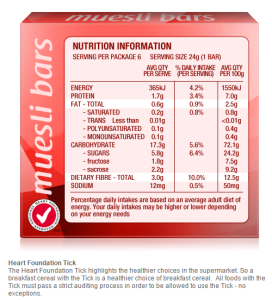MSG, you say you know it, but do you really? Read on for 4 things you should NOT be consuming.
It seems really stupid to write about what foods not to eat, nobody likes to be told what to do, however I believe there are a few foods/additives everyone should be educated about so they at least know the consequences of eating them. Many products either negatively affect the environment, or are terrible for the body and one’s nutrition. So I thought I would LOVE to inform ya’ll of few things that you should SRSLY avoid.
MSG: Monosodium Glutamate, as it is lesser know. MSG is a food additive or the sodium of an amino acid named Glutamic Acid. It is used as a flavour enhancer in many cuisines. The issues is that having an excess amount of MSG is detrimental to the body. Naturally present glutamates in the body are harmless, but commercially produced MSG are bad, as people can gain insensitivities and react badly. Some issues include: allergy, overstimulation of appetite and excitotoxin (which is detrimental to the brain. MSG is linked to degradation of tissues- links to Alzheimer’s disease)
Trans Fat:These are unsaturated fats, usually found in natural foods. It’s chemical build, however, makes it behave like a saturated fat, meaning it does NOT lower cholestrol. This form of fat is consistently linked to heart disease in scientific studies, making it the number one cause of death in the world. That escalate quickly, huh. Fat contains hydrocarbon, and that is what becomes saturated, or unsaturated. Why are they bad? Because they lower the level of the lipoprotein HDL [the good cholestrol] and they raise the level of lipoprotein LDL [bad cholestrol]. You know it must be pretty bad when it is recommended you use other saturated fats in stead of trans fats (I thought SATURATED fats were meant to be the bad guys?).
The issue in Australia is Australia’s food labeling laws do not require trans fats to be shown separately from the total fat content. So it is really important to know where your food comes from. Please see the image for an ideal nutritional label including trans fat!
For more information of Trans fat in Australia, please visit http://www.heartfoundation.org.au/healthy-eating/fats/Pages/trans-fats.aspx
Image sourced from the Heart Foundation.
Palm Oil: Palm oil is a vegetable oil used in cooking, with 85% of the world’s palm oil coming from Indonesia and Malaysia. That is a really concentrated source. Most of the time, palm oil is not grown using sustainable measures, so it doesn’t make it a good choice. Deforestation, land degradation, animal cruelty and climate change are just some of the issues that arise from the use of uncertified palm oil.
It became popular because it as meant to be a healthier alternative to trans fats, however it has as much saturated fats as butter. The other issue with palm oil is that it only has benefits to the human body if it is raw, but most palm oils used in foods are OXIDISED, which means they are processed and are then a problem for toxicity levels, especially organs such as the kidney and liver. It is a large concern when buying ready made foods, groceries or dining out because to get the “zero trans fat” glory, companies often use large amounts of palm oil to get a similar outcome- not so good for the human body.
For more information on Palm oil in Australia, check out:
http://www.saynotopalmoil.com
http://www.onegreenplanet.org/vegan-food/is-palm-oil-good-for-your-health/
High Fructose Corn Syrup: We are pretty lucky in Australia, we as a nation are not as exposed to HFCS as it is best known. It is a sweetener made from cornstarch, used as an alternative to sugar, it is massive in American food production. Maybe we should be lucky we have a good sugar cane industry, IDK! HFCS is used in many fruit drinks and soft drinks, and even if less prominent in Australia than other countries, many foods still contain it, so it is best to know that it still is linked to issues such as diabetes and obesity. The main concern is the way that the human body digests HFCS in comparison to sugar. There are no stable studies that say it is better for you than sugar, and it causes many health issues from ingestion. Let’s just stick with our guide of no more than 6 teaspoons of SUGAR per day, yeah? None of that nasty gunk 🙂
Stay healthy!
Sydney Brunch Lyf



Thank you for informing me !! Some of the things i really did not know ❤
Love, Anna xx
https://annadaftari.wordpress.com/2015/10/26/i-present-the-amazing-pizza-pocket-it-is-so-easy-to-make-and-i-am-telling-you-if-you-eat-this-once-you-will-never-wanna-eat-something-else-again-vegan-pizza-rocks/
LikeLike
I love nut bars, got to part with them 😭
LikeLike
Yeah ! I’d be checking. The contents and see what oils they contain. Good thing about nut bars though Is they are easy to make at home
LikeLike
MSG is such a tough one to navigate around – I love Chinese food, and back in the day it used to be common practice for Chinese restaurants to use MSG in all their dishes. So now, I always ask if it’s included… if it doesn’t say on the menu.
It’s so artificial, imagine what it’s doing to your insides!
AR xx
LikeLiked by 1 person
I know same here! Thanks for your insight. I have the same concern when I have Chinese too, it is definetly a favourite, but a worry with the potential of MSG being in all my favourite dishes 😦
LikeLike